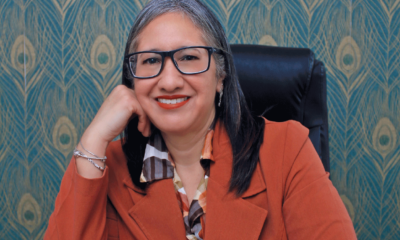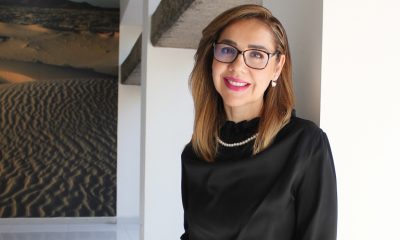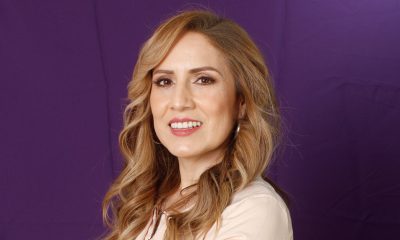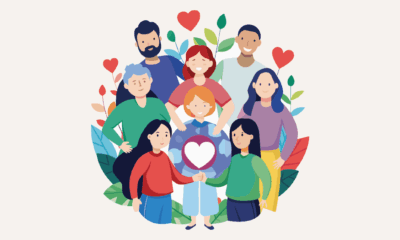Conecta con el mundo
Familias LightShine
Publicado
3 años antesel
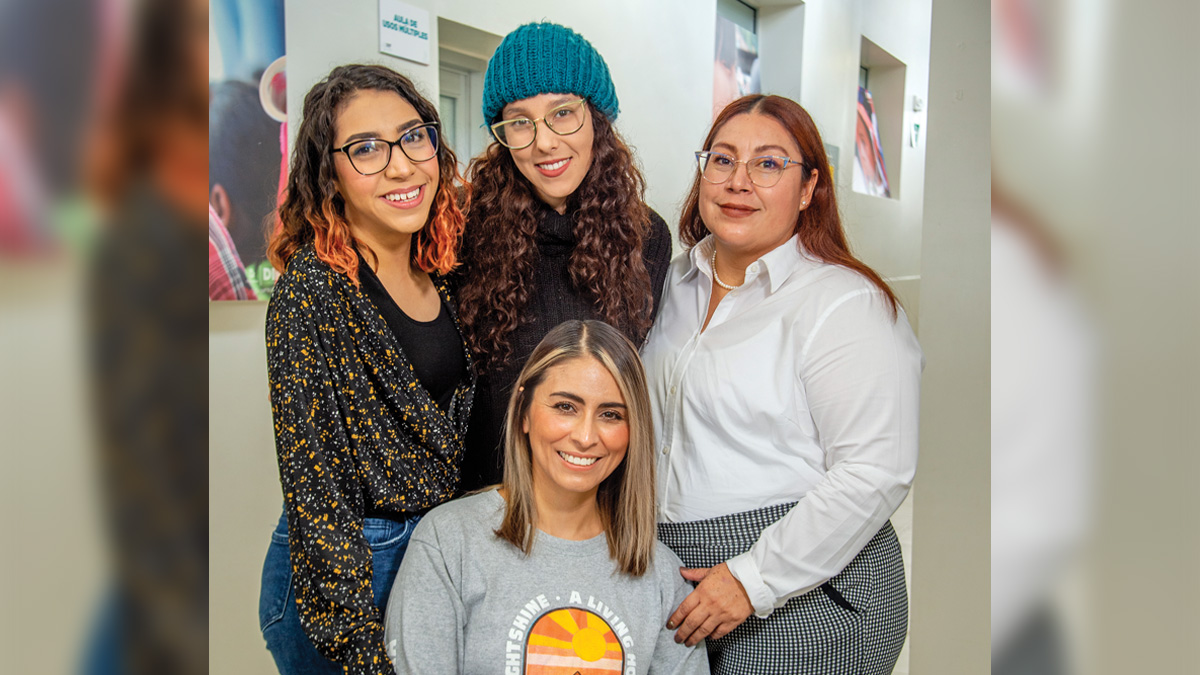
Abrir las puertas de tu casa a un niño que lo necesita puede ser la gran diferencia en su vida
A un año 8 meses de su llegada a Ciudad Juárez, LightShine a ayudado a proporcionar acogida a más de 30 menores cuyos padres se encuentran bajo algún proceso legal y por lo tanto no se pueden hacer cargo de su bienestar.
Para esto, el proyecto ha contado con la colaboración y buena voluntad de familias fronterizas que se han comprometido a salvaguardar la integridad de los niños, niñas y adolescentes, así como a ayudarlos a permanecer en un hogar amoroso e interesado en su desarrollo emocional, físico y espiritual.
Familias LightShine es un programa enfocado en que todos los menores tutelados por el DIF estatal puedan ejercer el derecho de poder vivir en familia, luego de que sus cuidadores primarios no están en condiciones de hacerlo.
La mayoría de estos niños son canalizados por el Gobierno estatal, luego de ser resguardados y sometidos a un proceso de investigación previa.
El objetivo es proveer una solución o un acompañamiento a los niños de manera temporal, en lo que Procuraduría da una solución a su situación legal definitiva.
Lo anterior lo informa para Visionarias Rocío Barrón encargada de trabajo social dentro de la organización.
Los niños
Para las familias interesadas en dar acogida a estos pequeños, es importante que sepan que, por sus condiciones de vida, los menores llegan al programa enfrentando diversas problemáticas, consecuencia de la negligencia u omisión de cuidados que pudiera haber en su núcleo formativo y del que están siendo retirados.
Hay pequeños con ansiedad y terrores nocturnos desarrollados por la incertidumbre de no saber qué va a pasar con ellos o por el abuso al que han sido sometidos previamente.
Ante lo complicado que esto pudiera parecer, Daniela Herrera, coordinadora y psicóloga del programa, recuerda a los participantes “que todo lo que nuestros niños hagan no es contra ellos, no están enojados con ellos, es una situación meramente neurológica”.
Hasta la realización de esta entrevista, habían sido resguardados 30 niños, mismo que fueron colocados en familias de acogida; de esos menores, 16 han tenido una resolución definitiva de su caso, siendo devueltos con su familia biológica o puestos en adopción, esto último no es posible para las quienes participan en el programa de LightShine, situación que queda clara desde el inicio de la capacitación.
Cómo funciona
Las familias son meramente temporales, previamente elegidas y evaluadas, lo que garantiza que cuentan con ciertos recursos y habilidades que ayudarán a acompañar de manera adecuada a estos niños, cuyas edades van de los 0 meses a los 17 años.
Una vez que son evaluados pasan a una capacitación de 24 horas, donde se les explica las condiciones en las que llegan los menores. Hay familias disponibles de acuerdo con el perfil del niño que les será asignado. El Estado certifica a las familias de acogimiento y LightShine da seguimiento semanal a cada uno de los casos.
Actualmente hay 28 familias certificadas, 20 abiertas a acogimiento y 13 activas.
“Este programa funciona con la buena voluntad de las familias, de la comunidad que ha querido responder ante el llamado”, dice Daniela, quien agrega que “son familias donde sus corazones se han movido y que realmente lo hacen como un acto humanitario, un acto de servicio a la comunidad”.
Requisitos
En Chihuahua hay más de 320 niños, niñas y adolescentes tutelados por Gobierno del Estado, para los cuales se necesitan de más hogares amorosos que les den cabida y les hagan saber lo que es una verdadera familia.
Para lograrlo, los interesados deberán entregar a Familias LightShine, carta de no antecedentes penales, identificaciones oficiales de los padres, acta de matrimonio (si son casados), acta de nacimiento de cada uno y la CURP, así como contar con la mayoría de edad.
También se deben pasar los filtros establecidos y asistir a la capacitación establecida. Es importante señalar que toda la familia, no importa el perfil que ésta tenga, debe estar de acuerdo en recibir al menor, en caso de que alguno de los miembros no lo esté, el acogimiento no se lleva a cabo.
No hay límite de acogimiento y éste puede durar de un día hasta dos años.
Por último, Rocío Barrón, hace un importante llamado, “necesitamos familias, apelamos al buen corazón de las familias cristianas de esta frontera para que abran sus hogares y den un hogar de manera temporal a estos pequeños que necesitan conocer del amor de Jesús y el amor de nosotros como personas o como familias”.
Si usted está interesado en ser parte del programa, puede ponerse en contacto a través de las páginas de Facebook e Instagram: Familia LightShine, o hablar por teléfono a los números 656-263-4035 y 656-242-2336.
No pierda la oportunidad en hacer la diferencia para estos niños.
Equipo LightShine
- Daniela Herrera, coordinadora y psicóloga
- María Fernanda Avitia, psicóloga
- Marisol Vázquez, encargada de promoción
- Rocío Barrón, trabajo social
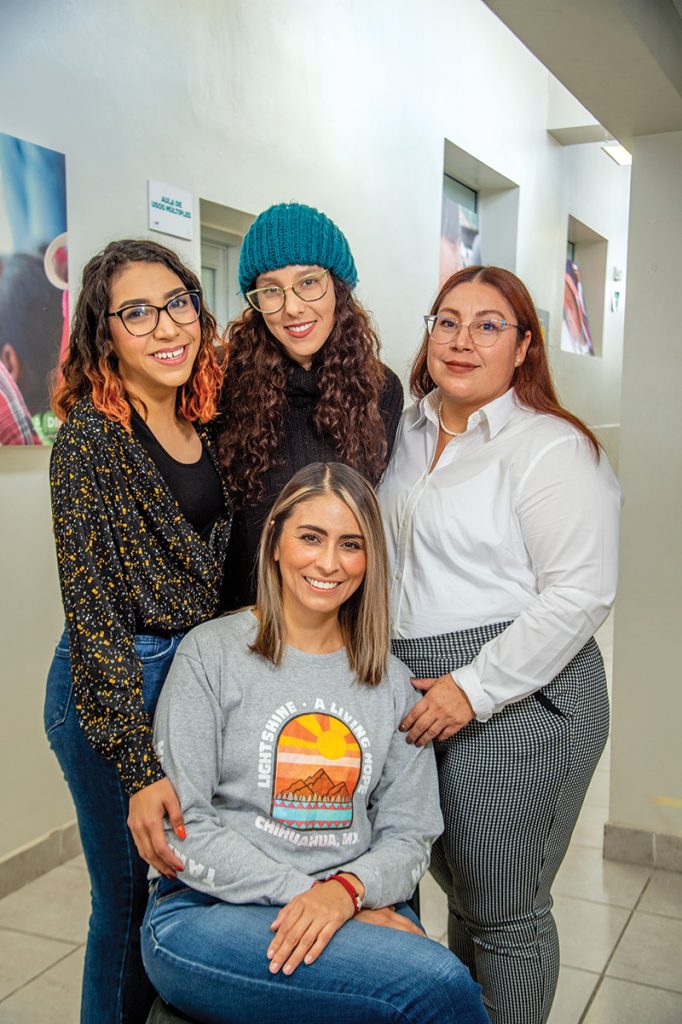
LightShine families
Opening the doors of your home to a child in need can make a big difference in his or her life
One year and 8 months after she arrived in Ciudad Juarez, LightShine has helped provide shelter to more than 30 children whose parents are undergoing legal proceedings and therefore cannot take care of their welfare.
For this, the project has counted on the collaboration and goodwill of border families who have committed to safeguarding the integrity of the children and adolescents, as well as to help them stay in a loving home interested in their emotional, physical, and spiritual development.
Familias LightShine is a program focused on enabling all children under the guardianship of the state DIF to exercise their right to live with a family after their primary caregivers are unable to do so.
Most of these children are channeled by the state government, after being sheltered and undergoing a prior investigation process.
The objective is to provide a solution or accompaniment to the children temporarily, while the Attorney General’s Office provides a solution to their definitive legal situation.
This was reported to Visionarias by Rocio Barron, who is in charge of social work within the organization.
The children
For the families interested in welcoming these children, it is important to know that, due to their living conditions, the minors arrive at the program facing different problems, as a consequence of the negligence or omission of care that could be in their formative nucleus and from which they are being withdrawn.
There are children with anxiety and night terrors developed because of the uncertainty of not knowing what will happen to them or because of the abuse to which they have been previously subjected.
Given how complicated this may seem, Daniela Herrera, coordinator and psychologist of the program, reminds the participants “that everything our children do is not against them, they are not angry with them, it is a purely neurological situation”.
As of the time of this interview, 30 children had been sheltered and placed in foster families; of those children, 16 have had a definitive resolution of their case, being returned to their biological family or put up for adoption, the latter is not possible for those who participate in the LightShine program, a situation that is clear from the beginning of the training.
How it works
The families are merely temporary, previously chosen and evaluated, which guarantees that they have certain resources and skills that will help to adequately accompany these children, whose ages range from 0 months to 17 years old.
Once they are evaluated, they undergo a 24-hour training, where the conditions in which the children arrive are explained to them. Families are available according to the profile of the child that will be assigned to them. The State certifies the foster families and LightShine follows up on each case every week.
Currently, there are 28 certified families, 20 open to foster care, and 13 active.
“This program works with the goodwill of the families, of the community that has wanted to respond to the call,” says Daniela, who adds that “they are families whose hearts have been moved and who do it as a humanitarian act, an act of service to the community”.
Requirements
In Chihuahua, there are more than 320 children and adolescents under the guardianship of the State Government, for whom more loving homes are needed to give them a place and let them know what a real family is.
To achieve this, those interested must submit to Familias LightShine, a letter of no criminal record, official identification of parents, marriage certificate (if married), birth certificate of each one, and CURP, as well as having the age of majority.
They must also pass the established filters and attend the established training. It is important to point out that the whole family, regardless of their profile, must agree to receive the child; if any of the family members do not agree, foster care will not be carried out.
There is no limit to foster care and it can last from one day to two years.
Finally, Rocio Barron makes an important call, “we need families, we appeal to the good heart of the Christian families of this border to open their homes and give a temporary home to these little ones who need to know the love of Jesus and the love of us as individuals or as families”.
If you are interested in being a part of the program, you can get in touch through the Facebook and Instagram pages: LightShine Family, or talk on the phone at 656-263-4035 and 656-242-2336.
Don’t miss the opportunity in making a difference for these children.
LightShine Team
- Daniela Herrera, coordinator and psychologist
- María Fernanda Avitia, psychologist
- Marisol Vázquez, promotion manager
- Rocío Barrón, social work
Te puede interesar
Conecta con el mundo
‘De un sueño a un legado’
Publicado
2 semanas antesel
01/07/2025Por
Luz María Sotelo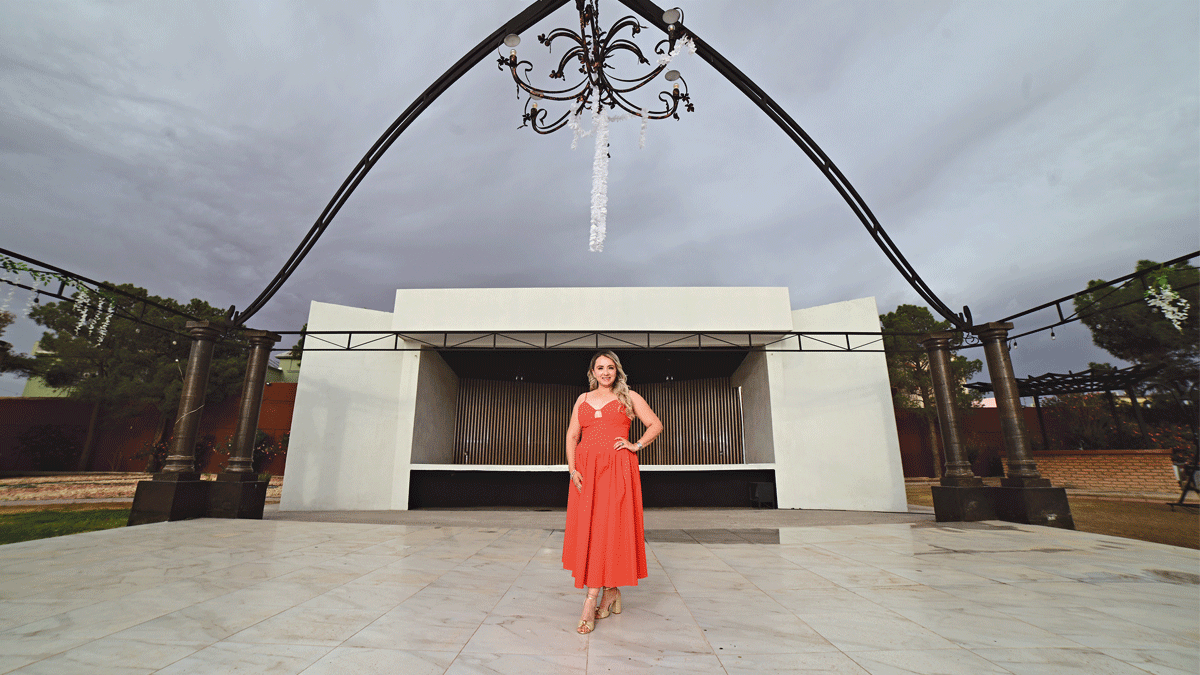
Siguiendo la voz de su intuición, Coral Rueda dejó la abogacía para hacer realidad sus sueños… y los de sus clientes
El ejemplo perfecto de que siempre debemos seguir nuestros sueños es el que nos da Coral Rueda, fundadora de Quinta Santa Lucía, quien dejó la abogacía para dedicarse a lo que realmente le apasiona, la creación de eventos sociales.
En entrevista para Visionarias, Coral nos cuenta que todo comenzó con un espacio que ha simple vista parecía no tener un propósito, sin embargo, ella le vio potencial para convertirlo en el lugar ideal para la realización de eventos sociales, mismo que con el tiempo se ha convertido en un espacio muy especial para ella, “pues he visto celebrar la vida y el amor en él”, comenta la juarense y madre de dos hijos.
Sobre Quinta Santa Lucía, Coral nos dice que cuenta con un área de jardín grande con aforo para 500 personas, así como con un salón pequeño para 120 invitados y una alberca con su propio espacio al aire libre en el que también caben 200 personas. Además, espera este año poder inaugurar el salón San Luca, que tendrá capacidad para 250 personas.
Sin duda son espacios en el que se pueden crear las más increíbles experiencias, las cuales van desde una despedida o baby shower, hasta una ceremonia matrimonial y por qué no, algunos eventos empresariales. Cabe destacar que la quinta también cuenta con ruedo, caballerizas y otras áreas para capacitaciones.
Si no tienes idea de cómo llevar a cabo tu gran evento, aquí puedes encontrar los mejores proveedores, listos para edificar desde cero el proyecto en mente.
En busca de la felicidad
Abogada de profesión, Coral se describe a sí misma como “una persona proactiva, totalmente comprometida a las metas que me propongo, tanto personales y laborales, soy una persona entusiasta, generosa y busco mucho la empatía con mi equipo de trabajo, con la gente que me rodea y en el ámbito profesional. Me considero también un tanto exigente, pues me gusta cumplir con lo que se promete al cliente, tratando siempre de dar el mejor resultado”, cuenta.
Aunque acepta que en el proceso ha tenido altas y bajas, sin embargo, ella busca la manera de innovar en el negocio y seguir adelante, tanto laboral como personalmente, por lo que siempre halla la manera de equilibrar estos dos aspectos de su vida.
“Para mí ha sido uno de los mayores retos saber equilibrar lo que es la empresa con ser mamá, porque me gusta ser una mamá 100 por ciento presente, entonces he tratado de equilibrar y organizar mi día a día tanto con las actividades de mis hijos, porque me gusta involucrarme con ellos, me gusta estar en sus eventos, pero también me gusta estar en mi negocio, y es algo que yo amo, entonces para mí ha sido un reto el saber equilibrar y organizar mi día a día”, comenta, pero deja en claro que su prioridad es su familia.
‘Mi centro y mi guía’
Por último, Coral sabe que todo lo que ha logrado, además de su intuición y perseverancia es gracias a Dios, de quien dice “es mi centro y mi guía” y afirma que él “no sólo es una creencia, es una relación que me da fuerza en los momentos difíciles y me da humildad en los momentos de éxito”.
“En lo personal y en lo profesional siempre he dicho que los planes de Dios son perfectos, yo siempre pongo y antepongo mis planes, siempre es ‘este es el proyecto que yo visualizo, esto es lo que yo quiero, pero Dios mío guíame, si es qué padre pon los medios y si no, también pon los medios”.
Y justo con la confianza que la caracteriza, esta mujer visionaria, manda un mensaje a nuestras lectoras, a quienes pide que confíen, así como ella lo hizo.
“Confíen en su capacidad más que nada porque a veces dudamos mucho del potencial que tenemos, o lo desconocemos. A veces dudamos en dar un paso adelante por miedo a no estar listas, pero creo que nadie nace sabiendo y se aprende en base a las experiencias. Les aconsejo se rodeen de personas que sumen, que inspiren y que apoyen, y que no tengan miedo de equivocarse, cada error es una lección valiosa”, concluye.
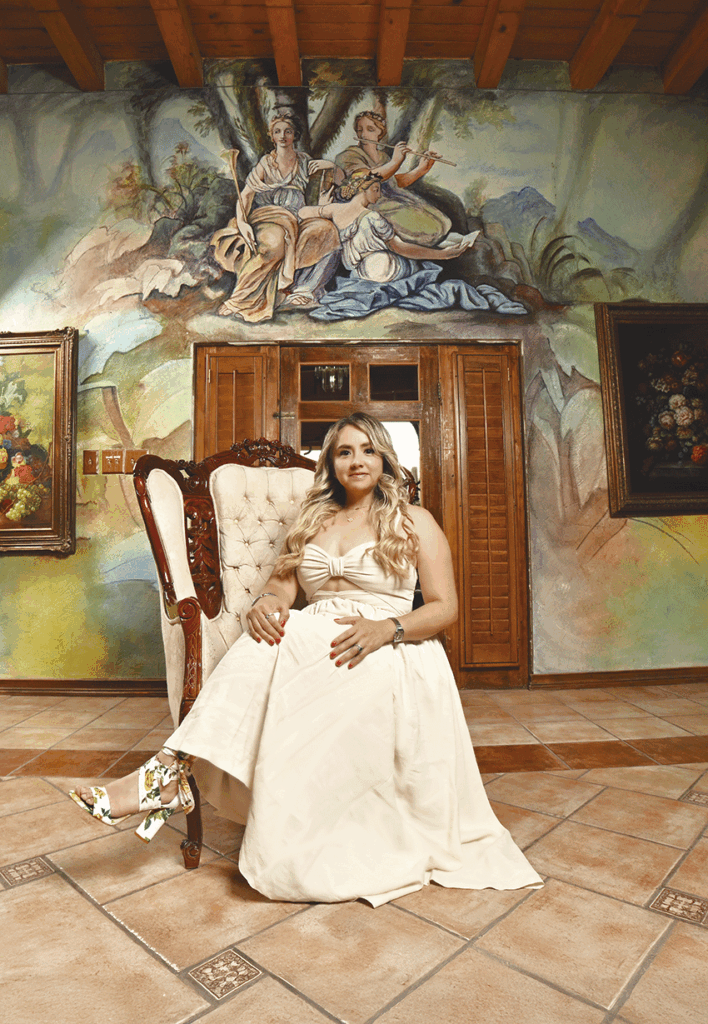
“From a Dream to a Legacy”
Following the voice of her intuition, Coral Rueda left law to make her dreams—and those of her clients—come true.
A perfect example of why we should always follow our dreams is Coral Rueda, founder of Quinta Santa Lucia, who left the legal profession to dedicate herself to what truly passions her: creating social events.
In an interview with Visionarias, Coral shares that it all began with a space that at first glance seemed to have no purpose. However, she saw its potential to become the ideal venue for social events—a place that over time has become very special to her. “I’ve seen life and love celebrated here,” says this native of Juarez and mother of two children.
About Quinta Santa Lucia, Coral tells us it features a large garden area with a capacity for 500 people, a smaller hall for 120 guests, and a pool area with its own outdoor space that can hold 200 people. Additionally, she hopes to inaugurate the San Luca Hall this year, which will have a capacity for 250 people.
These are spaces where incredible experiences can be created, ranging from farewell parties or baby showers to weddings—and even some corporate events. It’s worth noting that the venue also includes an arena, stables, and other areas for training sessions.
If you have no idea how to organize your big event, here you can find the best vendors, ready to build your project from the ground up.
In Search of Happiness
A lawyer by profession, Coral describes herself as “a proactive person, fully committed to the goals I set for myself, both personal and professional. I am enthusiastic, generous, and seek empathy with my team, those around me, and professionally. I also consider myself somewhat demanding because I like to fulfill what is promised to the client, always trying to deliver the best results,” she shares.
Though she acknowledges there have been ups and downs along the way, she strives to innovate and move forward in her business and personal life, always finding ways to balance these two important aspects.
“For me, one of the greatest challenges has been balancing the company with being a mom, because I want to be 100% present as a mother. I’ve tried to organize and balance my day-to-day with my children’s activities, because I like to be involved with them, attend their events, but I also love being in my business, which I adore. So, balancing and organizing my daily life has been a challenge,” she explains, making it clear that her family is her priority.
“My Center and My Guide”
Finally, Coral knows that everything she has achieved—besides her intuition and perseverance—is thanks to God, whom she calls “my center and my guide.” She affirms that He “is not just a belief, but a relationship that gives me strength in difficult moments and humility in times of success.”
“Personally, and professionally, I have always said that God’s plans are perfect. I always put forward my plans, it’s always like, ‘this is the project I envision, this is what I want, but God, please guide me; if it’s good, provide the means, and if not, also provide the means.’”
With the confidence that defines her, this visionary woman sends a message to our readers, encouraging them to trust as she did:
“Trust in your own ability above all, because sometimes we doubt our potential or we’re unaware of it. Sometimes we hesitate to take a step forward out of fear of not being ready, but I believe no one is born knowing everything—we learn through experience. I advise surrounding yourselves with people who add value, inspire, and support you, and don’t be afraid to make mistakes—each mistake is a valuable lesson,” she concludes.

Gabriela Téllez, es una reconocida presentadora de noticias en Ciudad Juárez y madre de dos hijos, se autodescribe como “una madre poco convencional”.
“Soy una mujer perteneciente a Ciudad Juárez, la adoro profundamente, soy de la idea de que tienes que amar este suelo que estás pisando, agradecer porque te da de comer, te da familia, te da la oportunidad de ver salir el sol, amo mi Ciudad Juárez”, declaró Téllez.
Gabriela relató a Revista Visionarias que trabajó por 10 años en la industria maquiladora, en donde admiraba a una mujer gerente de recursos humanos, quien tenían seguridad y porte, por lo que, su sueño era capacitar al personal en una empresa. Por ello, decidió estudiar Ciencias de la Comunicación, aunque irónicamente no se cumplió como tal ese sueño, logró pararse frente a un público e informar a la comunidad.
Nunca imaginó trabajar como conductora de noticias, sin embargo, por azares del destino llegó al Canal 44 y permaneció en la televisión durante 18 años.
Aunque en ese momento no era su plan quedarse, pues ya era madre y pensaba que no encajaba en ese puesto, la empresa le enseñó a maquillarse, peinarse, vestirse y hasta aceptar tú propia voz. “La gente piensa que se necesitan ciertas características para salir en la televisión, sin embargo, lo que se requiere es ser singular y diferente”, mencionó.
Como mujer y profesionista, Gaby considera que aún cuando tienes hijos, nada te tiene que detener, a pesar de que ella continuó trabajando por necesidad, también lo hizo porque no se veía sin trabajar, pues ella empezó su vida laboral desde los 15 años.
Destacó que, afortunadamente el Canal 44 le permitió seguir trabajando y compaginar su rol de madre, ya que podía cuidar a sus hijos, darles de comer, llevarlos a la escuela y trabajar por las noches. Sin embargo, acepto que fue complicado, porque la ciudad ha pasado por momentos difíciles.
Señaló que, es una mamá fuera de lo convencional, pues es estricta y por eso, impulsa a sus hijos a que no dependan de ella, y que sean autosuficientes. Sobre todo, porque sus hijos son varones, pues considera que como madre tienes que enseñarles a que sean hombres independientes, que aporten y sean valiosos para la sociedad, porque ellos mañana serán los líderes de su hogar.
Dios en su vida
“Para mi Dios es algo con lo que nacimos, soy de la idea de que, si lo pones en duda, y cuando lo pones en duda, al final ahí está, te encuentras que hay alguien más grande que tú”, comentó.
Un mensaje a las madres juarenses
Las madres debemos darnos permiso de detenernos y replantearnos el camino para seguir nuestros sueños, ya que como mujeres tenemos tantos cambios físicos, hormonales y emocionales.
“Ve por que cambios has pasado y si lo que tienes en este momento te gusta, sino te gusta, tenemos la obligación como personas de seguir creciendo y hacer ajustes a la nueva mujer en que te convertiste y la etapa en la que estás, no abandones tus sueños, muchas mujeres lo hacemos por que la vida nos va exigiendo cada vez más”, puntualizó Téllez.
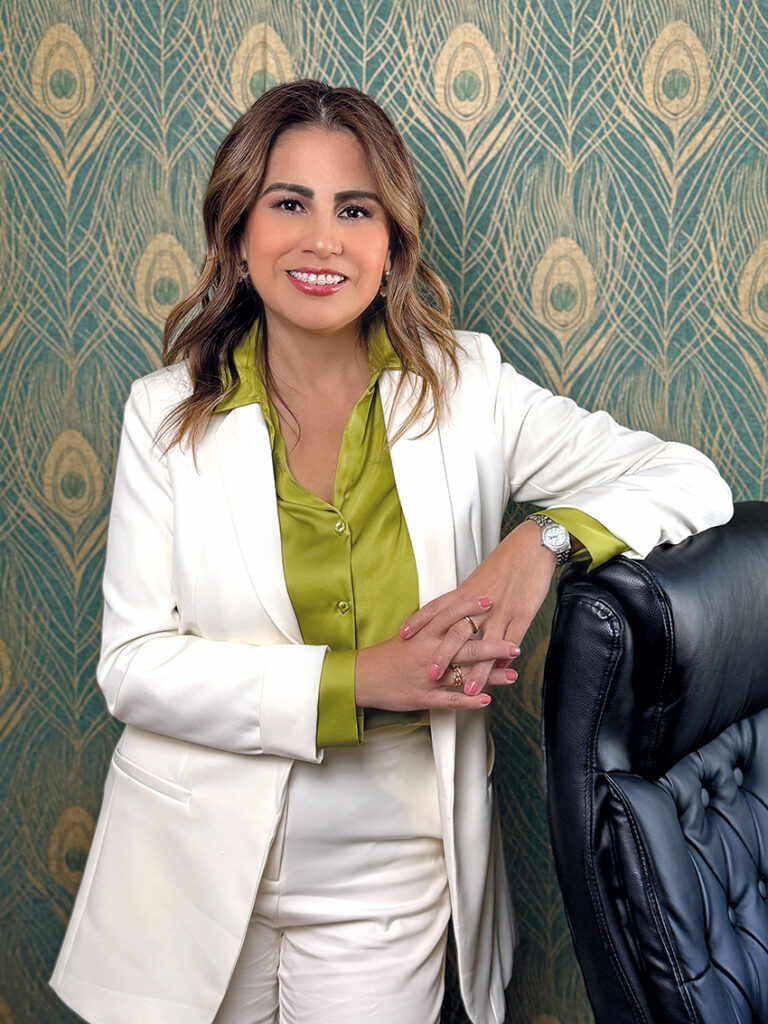
An Unconventional Mom: Gaby Tellez
Gabriela Tellez, a renowned news anchor in Ciudad Juarez and a mother of two, describes herself as “an unconventional mother.”
“I am a woman who belongs to Ciudad Juarez. I adore it deeply. I believe that you must love this land you walk on, be grateful because it feeds you, gives you a family, gives you the opportunity to see the sunrise. I love my Ciudad Juarez,” Tellez declared.
Gabriela told Visionarias Magazine that she worked for 10 years in the maquiladora industry, where she admired a female human resources manager who had confidence and poise. Her dream was to train staff at a company. Because of this, she decided to study Communications Sciences. Although, ironically, that dream didn’t come true, she managed to stand in front of an audience and inform the community.
She never imagined working as a news anchor, but by chance, she ended up at Channel 44 and remained in television for 18 years.
Although at the time it wasn’t her plan to stay, as she was already a mother and thought she didn’t fit in the position, the company taught her how to apply makeup, style her hair, dress, and even embrace her own voice. “People think you need certain characteristics to appear on television, but what you need is to be unique and different,” she said.
As a woman and a professional, Gaby believes that even when you have children, nothing should stop you. Although she continued working out of necessity, she also did so because she couldn’t see herself going without work, as she began her career at the age of 15.
She emphasized that, fortunately, Channel 44 allowed her to continue working and balance her role as a mother, as she was able to take care of her children, feed them, take them to school, and work nights. However, she accepted that it was complicated because the city has been through difficult times.
She noted that she is an unconventional mother, as she is strict and therefore encourages her children not to depend on her and to be self-sufficient. Especially because her children are boys, she believes that as a mother you must teach them to be independent men, who contribute and are valuable to society, because tomorrow they will be the leaders of their homes.
God in Her Life
“For me, God is something we were born with. I believe that if you question it, and when you question it, in the end, it’s there, you find that there is someone greater than you,” she commented.
A Message to the mothers of Juarez
As mothers, we must give ourselves permission to stop and rethink the path to follow our dreams, since as women we go through so many physical, hormonal, and emotional changes.
“Look at the changes you’ve gone through and see if you like what you have right now. If you don’t, we have an obligation as people to continue growing and adjusting the new woman you’ve become and the stage, you’re in. Don’t give up on your dreams. Many women do it because life demands more and more of us,” Tellez said.
Conecta con el mundo
Laura Sánchez: Con el tiempo a favor
Publicado
2 meses antesel
05/05/2025Por
Luz María Sotelo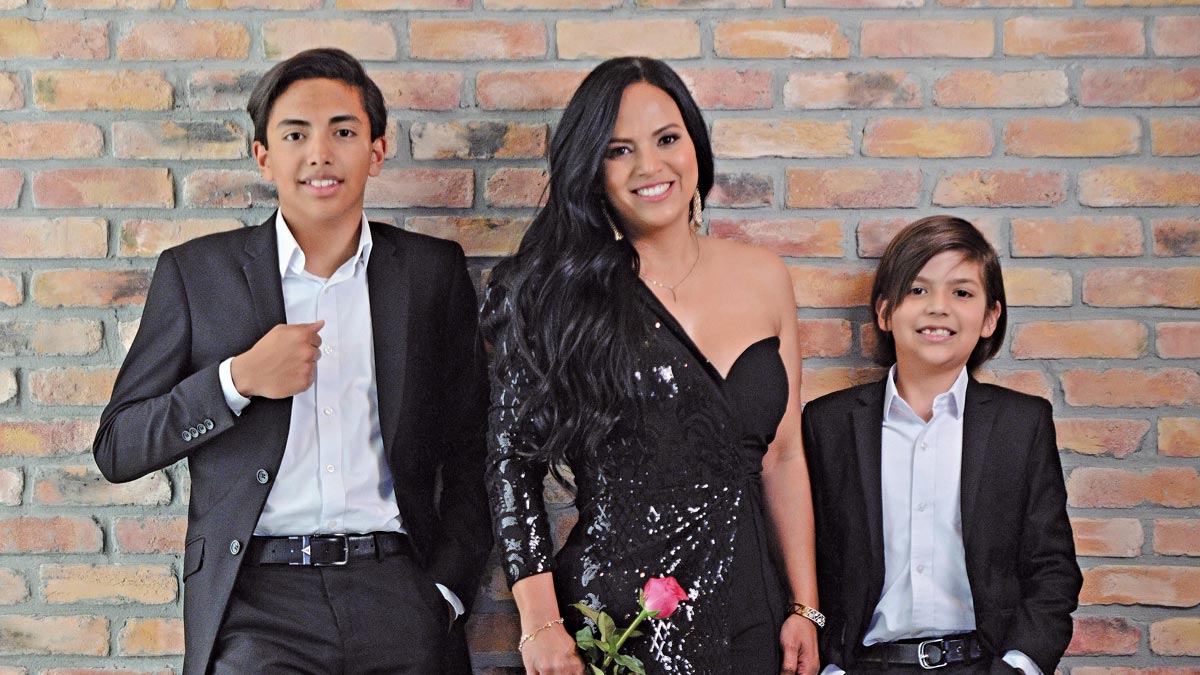
El trabajo en equipo y la organización son las herramientas clave para su labor
Reconocida en la frontera como la mejor wedding planner de Ciudad Juárez, Laura Sánchez comparte con Visionarias su estrategia para mantenerse en lo más alto de la organización de eventos, al tiempo que debe seguir siendo madre y esposa al 100 por ciento.
Esta mujer visionaria nos dice que el secreto está en el tiempo y en trabajar en equipo con su familia para que ella pueda cumplir con su oficio, el cual comenzó a desempeñar en 2016.
Recuerda que fundó Decco Event Planning and Design luego de asistir a una boda en la Ciudad de Chihuahua, donde se fijó en todos los detalles, la organización y decoración, algo que siempre le interesó.
Pero para lograrlo no sólo bastaba con querer hacerlo, tenía que organizarse para seguir cumpliendo con su rol de mamá, así como esposa, por lo que el tiempo fue su mayor reto, ya que ahora también debía acoplarse a la disponibilidad de sus clientes.
Sin embargo, gracias al apoyo de su marido y su fe en Dios a sabido llevarlo a cabo, “Dios siempre ha estado conmigo, cada día me sorprende más de cómo ha estado conmigo, yo siempre digo ‘gracias, Dios’, porque hasta yo misma me sorprendo; digo ‘gracias, Dios, porque estuviste aquí y esto tú me guiaste’, Dios me guió para hacer todo esto”, dice.
Sus hijos, su mayor proyecto
Para Laura, “ser madre es algo muy bonito”, asegura que junto con ello, su familia se ha convertido en un equipo cuyo objetivo final es hacer de sus hijos buenas personas, con valores y principios, además de la gratificación que tiene al sentirse admirada por sus hijos.
Es por lo anterior que siempre busca darles el mejor ejemplo para que en un futuro sepan valorar a las mujeres de su vida.
“Yo tengo dos niños varones y darles ese ejemplo a mis hijos siento que a ellos les va a influir mucho en su vida con su pareja o matrimonio para que ellos acepten que también como mujer tenemos la misma oportunidad”, dice.
Y por esas mismas oportunidades es que envía un sincero mensaje, “crean… cuando uno cree en uno mismo sacamos maravillas de nosotras mismas, que a veces nosotras mismas nos impresionamos, dudamos tanto y muchas veces nos opacan, pero sí puedo”, agrega.
Decco Event Planning and Design
Calle Valle del Sol No.1961, Local 13, Plaza Iza
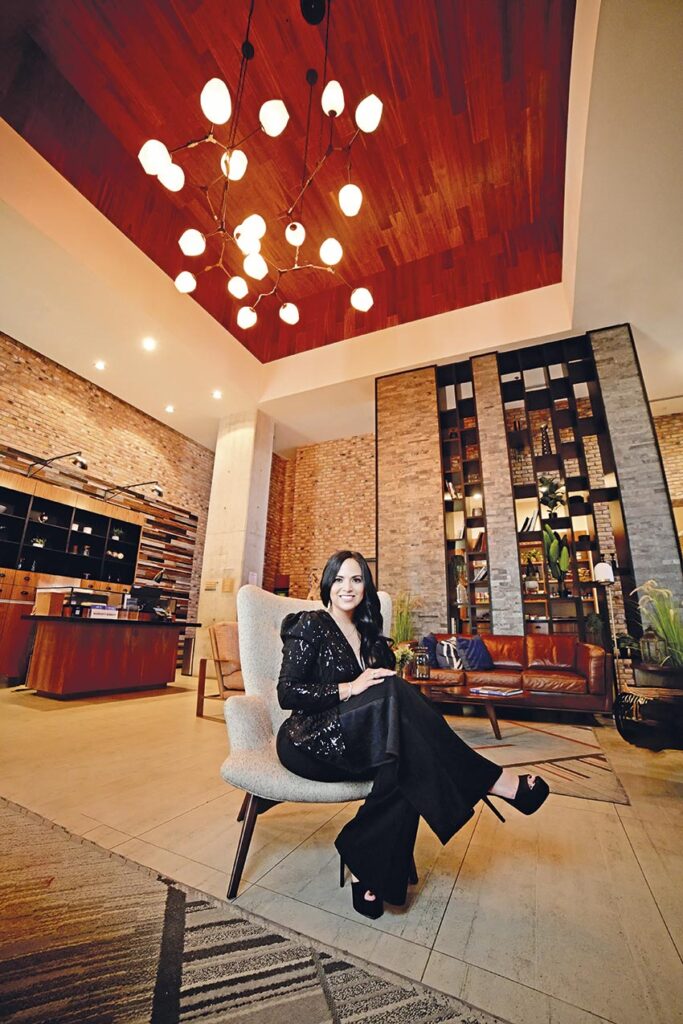
Laura Sánchez With time on her side
Teamwork and organization are key tools for her work.
Recognized on the border as the best wedding planner in Ciudad Juárez, Laura Sánchez shares with Visionarias her strategy for staying at the top of the event planning game while remaining a 100 percent mother and wife.
This visionary woman tells us that the secret lies in time and working as a team with her family so she can fulfill her profession, which she began in 2016.
She recalls that she founded Decco Event Planning and Design after attending a wedding in Chihuahua City, where she focused on every detail, the organization, and the decoration, something that had always interested her.
But to achieve this, it wasn’t enough just to want to do it; she had to organize herself to continue fulfilling her role as mother, as well as wife. Therefore, time was her biggest challenge, as she now also had to accommodate her clients’ availability. However, thanks to her husband’s support and her faith in God, she has been able to carry it out. “God has always been with me. Every day I am more surprised by how He has been with me. I always say, ‘thank you, God,’ because even I am surprised. I say, ‘thank you, God, because you were here, and you guided me through this.’ God guided me to do all of this,” she says.
Her Children, Her Greatest Project
For Laura, “being a mother is a beautiful thing.” She asserts that, along with this, her family has become a team whose ultimate goal is to raise their children into good people, with values and principles, in addition to the gratification she gets from feeling admired by them.
This is why she always strives to set the best example for them so that in the future they will know how to value the women in their lives.
“I have two boys, and setting that example for my children, I feel, will greatly influence them in their lives with their partners or marriages, so that they will accept that as women, we also have the same opportunities,” she says.
And it is through these same opportunities that she sends a sincere message: “Believe… when you believe in yourself, we bring out wonders in ourselves. Sometimes we impress ourselves, we doubt ourselves so much, and many times we are overshadowed, but yes, I can do it,” she adds.
Decco Event Planning and Design
1961 Valle del Sol Street, Unit 13, Plaza Iza



